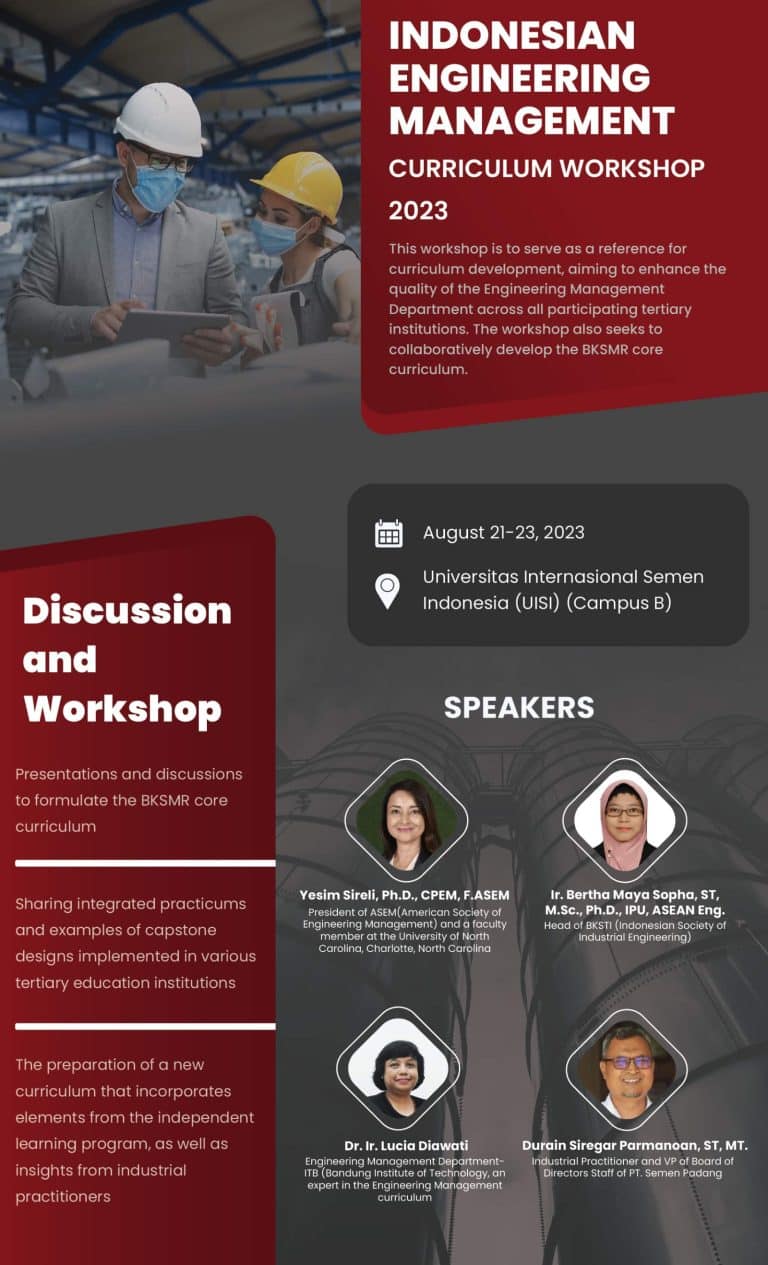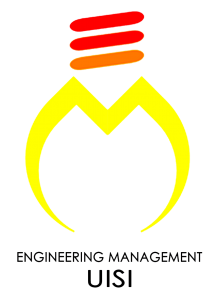Engineering Management Curiculum Workshop 2023

As a growing and developing department, the university/institution overseeing the MR Department continues to make efforts to ensure the quality of education and produce graduates who are readily absorbed into the workforce. One crucial step in this endeavor is updating the curriculum. According to the 2020 Higher Education Curriculum Development Guide, curriculum changes are based on several factors, including advancements in science, government policies, graduates’ employers’ needs, and ongoing curriculum evaluations’ results. One practical approach to achieve this is through curriculum sharing between tertiary institutions. Therefore, further discussions are needed concerning the core curriculum of the Engineering Management Department, which has been agreed upon by the association, namely the Engineering Management Higher Education Cooperation Agency (BKSMR).
As part of the LAM TEKNIK Accreditation scope, updating the curriculum requires the involvement of various stakeholders, including experts in the field of the departments, associations, industry/graduate users, and graduates. Ensuring the alignment of learning outcomes with graduate profiles at the appropriate IQF/SKNI level also requires agreement with the association. To achieve this, formulating the BKSMR Core Curriculum together, which includes examples of integrated practicums and capstone designs under the Engineering Management Body of Knowledge (EMBOK), becomes essential. Furthermore, feedback from the industry and alumni regarding the current curriculum is crucial in identifying the necessary improvements to the skills acquired by graduating Engineering Management students.
Given the context mentioned above, along with the support from the 2023 Independent Campus Competition Program (PKKM), the Engineering Management Department at Universitas Internasional Semen Indonesia organized a curriculum workshop for the benefit of Engineering Management Departments across Indonesia.
